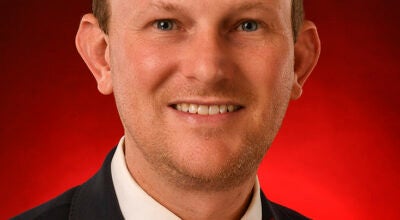The human face of economic freedom
Published 11:00 pm Wednesday, February 12, 2014
By Dan Sutter
Examining the effects of economic freedom is a core part of the mission of the Johnson Center. Economic freedom is the freedom for individuals to engage in voluntary transactions and use their time and talents as they see fit. The evidence overwhelmingly demonstrates that higher levels of economic freedom make nations more prosperous, healthier, and happier. Conversely, declines in economic freedom make nations poorer.
This should trouble Americans, since our economic freedom has declined since 2000. Many restrictions on economic freedom have a broad but modest effect, like small increases in tax rates which affect millions. These restrictions are like a light snow across a wide area. Other restrictions on economic freedom have a narrow but severe impact. For example, some laws or regulations prevent people from pursuing their chosen careers. These restrictions are like a patch of ice that sends a car skidding into a tree.
The wealth of a nation – the goods and services people consume – must be produced by men and women. People who work and build wealth might spend half their waking adult life working. Not surprisingly, the jobs we hold substantially affect our happiness. The freedom to choose a career is one of the most important components of the right to life and the pursuit of happiness. I have many hopes for my two year old son, but if he can find a well-paying and enjoyable career, he will be well on his way to a happy life.
Conversely, arbitrary laws needlessly restricting the pursuit of the career of one’s choosing should offend everyone who values freedom. Sadly, too many Americans face such restrictions. Occupational licensing laws establish training and other conditions necessary for people to hold certain jobs, but frequently restrict careers. Some occupational licensing restrictions are reasonable: people will not want a lawyer who doesn’t know the law or a doctor who hasn’t studied medicine.
But other licensing requirements are wholly unreasonable. Isis Brantley is a renowned African hair braider in Texas, so skilled in braiding that people will pay to learn from her. To braid hair in Texas, Ms. Brantley must pay for over 2,000 hours of expensive training about cutting – not braiding – hair. And she must set up a full barber college to legally teach hair braiding. States today require licenses for flower arrangers, interior designers, and psychics.
The Federal government crushed the dreams of playing poker professionally for thousands when they shut Americans off the major online poker sites in 2011. More than 30 states had and still have legal poker rooms, so this arbitrary action had nothing to do with keeping Americans from ever playing the game. Online games provided indispensable earnings for many players like Shane Schleger, who have faced a choice to leave the country or give up their career.
The minimum wage prevents anyone without sufficient job skills to earn this amount from entering the labor market and thus violates the freedom to earn a living. While many pundits dismiss minimum wage jobs as dead end, many people have moved from minimum wages to bigger things. James Collins, now a vice president for McDonald’s, started working as a crew member. Minimum wage jobs help thousands of Americans pay for college. A significant higher minimum wage, as many propose, would short-circuit the dreams of many future doctors, architects, and teachers.
Many Troy University students dream of starting a business one day. The needed licenses, inspections, and tax forms can thwart this dream. People with the resources and know how to hire lawyers and accountants can get this done. But low income Americans may not know how to or could not afford to hire a lawyer or accountant.
The Americans denied the freedom to earn a living are the human face of declining economic freedom. In criminal cases prosecutors must prove guilt beyond a reasonable doubt to take people’s freedom from them. Politicians should be held to a similar standard in passing laws or regulations denying Americans their right to pursue their chosen careers.
Daniel Sutter is the Charles G. Koch Professor of Economics with the Manuel H. Johnson Center for Political Economy at Troy University. Respond to him at dsutter@troy.edu and like the Johnson Center on Facebook.


